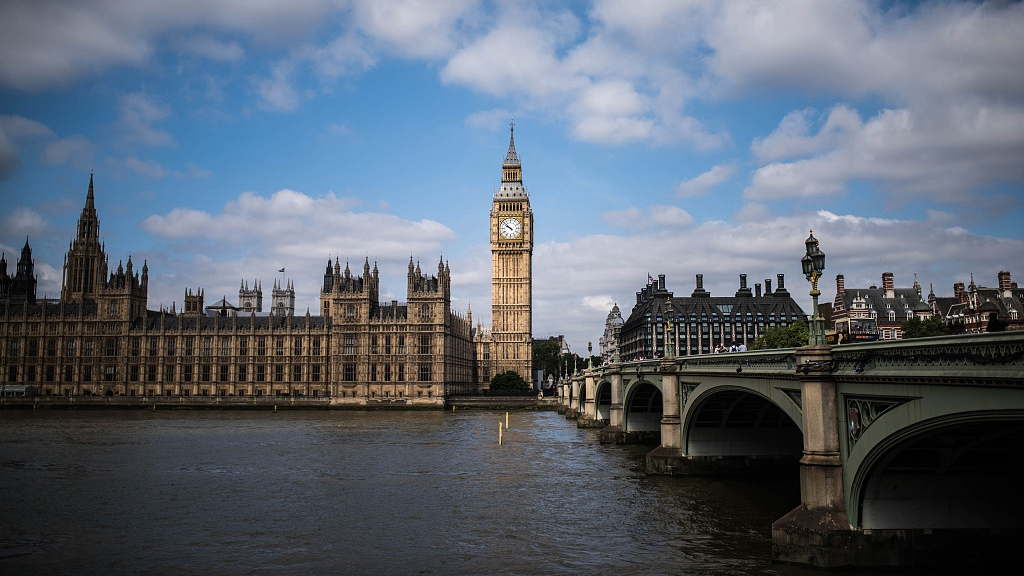
(Photo: CGTN)
Over the weekend the world was rocked by leaks by the British Foreign Office which revealed comments from the UK Ambassador to the United States, Sir Kim Darroch, which described the Trump administration as “dysfunctional” “clumsy,” “divided” and “inept,” questioning if the White House will “ever look competent.”
In response, the President stated the representative “had not served the UK well” and that “we’re not big fans of that man.” The British government scrambled to save face in the midst of the incident, stating that the remarks reflected a “personal view” only and not government policy.
The scandal reveals friction between the surface concerning London and Washington. Whilst the British government strongly adheres to the rhetoric of the “special relationship” and continues to place value on its ties with the United States, the reality is that the Trump administration has provided an unprecedented challenge for relations between the two countries.
Whilst the US President’s policies, attitudes and general approach to governance have proven deeply unpopular to British people, behind closed doors, senior officials have struggled to come to terms with what they can see first-hand as a chaotic and irrational foreign policy process, with its approaches to a series of issues not only having complete disregard for the consequences, but no coherent or logical strategy whatsoever. Thus, Britain can barely conceal its concerns.
The “special relationship” is an idealistic term used to describe the longstanding post-war diplomacy between the United Kingdom and the United States. Tied together by a similar ideology and a common cultural-linguistic heritage, Britain has been set in closer proximity to Washington than continental Europe, leading “Anglo” political identity to prevail over “European” belonging (hence the Brexit debate).
Nevertheless, this does not mean there are no differences and challenges. The Trump administration might be aptly titled as the biggest challenge yet. The current White House and its policies are decisively unpopular amongst the British public for a variety of reasons, with over two-thirds of Britons stating a “negative” view of the Trump administration. There is a prevailing sentiment that on diplomatic terms, the President is unreliable and even dangerous.
Despite this, the Conservative government has continued to try and uphold diplomacy “in special relationship” terms. Hamstrung by the strategic weakness of Brexit, some might argue they have had no choice but to strengthen ties with Washington. This has produced frictions whereby there has been widespread opposition to Trump’s visits to the country and even protests; it is an unstable relationship. Repeated outrage towards the US President from UK audiences has already resulted in several exchanges of “comments” between Theresa May and Trump.
Thus it is only inevitable that behind closed doors, reactions are likely to have been even worse. Senior officials such as the UK ambassador to the United States, have access to insider information which allows them to see how the White House operates on a day to day basis and a bigger picture overall. His comments were not meant to be offensive but realistic. There are clear signs that the administration’s foreign policy is operating on disastrous terms.
For example, when he talks about “division,” you can see how there is a constant power struggle between ultra-hawks such as John Bolton, who advocate war and confrontation, and those who do not. One issue where this issue is clearly playing out is Iran, where the White House doesn’t seem to know what it wants, with the US lacking any kind of coherent or meaningful strategy on anything.
Thus, the result is as he says, “chaos.” It is a presidential administration that threatens the entire world with tariffs, blacklistings, military withdrawals and other coercive measures, even to the point of such being aptly self-defeating or contradictory to other goals. Thus for Britain, a close ally, this has produced not only behind the scenes disgruntlement but even disbelief. Given this, the comments by the ambassador were a reflection of political reality.
Thus, despite the rhetoric of a “special relationship,” the world is looking at yet again another public diplomat spat between the White House and Downing Street, with the administration serving to alienate and cast doubt upon even its closest and most committed partners.


